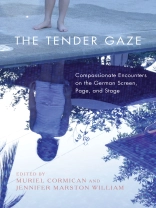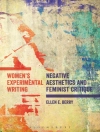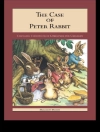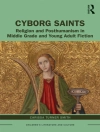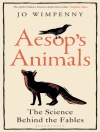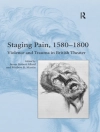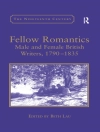By exploring the concept of the ‘tender gaze’ in German film, theater, and literature, this volume’s contributors illustrate how perspective-taking in works of art fosters empathy and prosocial behaviors.
The gaze, understood as a way of looking at others that involves contemplation and the operation of power, has an extensive history of iterations such as the male gaze (Mulvey), the oppositional gaze (hooks), and the postcolonial gaze (Said). This essay collection develops a supplemental theory of what Muriel Cormican has coined the ‘tender gaze’ and traces its occurrence in German film, theater, and literature. More than qualifying the primarily voyeuristic, narcissistic, and sexist impetus of the male gaze, the tender gaze also allows for a differentiated understanding of the role identification plays in reception, and it highlights various means of eliciting a sociopolitical critique in works of art. Emphasizing the humanizing potential of the tender gaze, the contributors argue that far from simply exciting emotional contagion, affect in art promotes an altruistic, rational, and fundamentally ethical relationship to the other. The tender gaze elucidates how perspective-taking operates in art to foster empathy and prosocial behaviors. Though the contributors identify instances of the tender gaze in artistic production since the early nineteenth century, they focus on its pervasiveness in contemporary works, corresponding to twenty-first-century concerns with implicit bias and racism.
قائمة المحتويات
Introduction: The Tender Gaze – Muriel Cormican and Jennifer Marston William
1: Toward a Theory of the Tender Gaze: Affect, Critical Insight, and Empathy in Contemporary German Cinema – Muriel Cormican
2: The Tender Gaze, Embodied Politics, and Perspective-Taking in German Postdramatic Theater – Jennifer Marston William
3: Face to Face: Race, Gender, and the Gaze in Mo Asumang’s
Die Arier – Nancy Nenno
4: ‘Risse, hinter denen man einen Kern entdeckt, der so ähnlich ist wie die Herzen von uns allen’: The Tender Gaze in Umut Dağ’s
Risse im Beton – Nikhil Sathe
5: Looking through the Eyes of Empathy: Encouraging a Culture of Caring and Compassion in Doris Dörrie’s
Keiner liebt mich – Erika Nelson Mukherjee
6: The Tender and Transgressive Beast Within: Escape Narratives in Films by Krebitz, Stuber, and Speckenbach – Mary-Elizabeth O’Brien
7: Looking at Looking in Margarethe von Trotta’s
Das Versprechen – John Blair
8: A Queer Phenomenology of Gender in Maren Ade’s
Alle Anderen and
Toni Erdmann – Gary Schmidt
9: Rilke’s ‘Schauen’ – Lorna Martens
10: Pity Stares or Tender Gaze? Seeing Disability in Nineteenth-Century Austrian and German Literature – Anna-Rebecca Nowicki
11: The Sociohistorical and Gendered Implications of Gazing Tenderly in Ludwig Tieck’s ‘Liebeszauber’ – Joseph Rockelmann
12: Mothering, Animals, and the Surveillance State in the Anthropocene: An Ecofeminist Reading of Birgit Vanderbeke’s
Die Frau mit dem Hund – Christina Weiler
Notes on the Contributors
Index
عن المؤلف
JENNIFER MARSTON WILLIAM is Professor of German at Purdue University. She is co-editor of Dimensions of Storytelling (CH, 2019).
